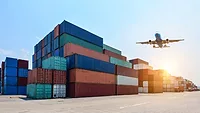Food Companies Must Strive to Increase Accessibility of Healthier Choices

Narong KHUEANKAEW/iStock / Getty Images Plus via Getty Images
The first UN Food Systems Summit convened world leaders in late September 2021 in an effort to spur national and regional action to deliver the UN’s 17 Sustainable Development Goals (SDGs) through transforming food systems. Among the goals for 2030 are zero hunger, zero poverty, gender equality, and climate action.
Following on from the latest Intergovernmental Panel on Climate Change report, which raised a “code red” for human-driven global heating, the U.S. administration—one of the world’s major agricultural producers—pledged $10 billion over five years to address climate change and help feed those most vulnerable without exhausting natural resources.
This commitment is a measure of how seriously leaders are taking the precarious nature of access to nutritious food and the impact of food systems on climate change. Widespread agreement exists that the transformation of food systems is critical to improving the lives of the three billion people globally who are malnourished and do not have access to nutritious food.
However, governments alone cannot effect the transformation that is urgently needed. Business has a massively important role to play, from multinational agribusinesses to food retailers. The global food industry has made a huge contribution to raising living standards across the world. More people than ever have access to affordable, healthy food and can make positive choices for their families. However, food insecurity still blights the lives of millions of people. For consumers, choosing to purchase healthy meal options or more sustainable foods often comes a higher cost. This makes it extremely difficult for the most vulnerable in society to choose healthy, safe, and sustainable food products.
To coincide with the UN Food Systems Summit, the World Benchmarking Alliance published its first food and agriculture benchmark,1 measuring and ranking 350 of the world’s biggest and most influential food and agricultural companies, based on their contribution to transforming our global food system. Its findings have left much to consider.
The benchmark demonstrates that the food and agriculture sector is not on track for transitioning to a sustainable food system. Its key findings reveal worrying gaps in the industry’s preparedness for climate change, progress on human rights, and contribution to nutritious diets. The benchmarked companies account for more than half of the world’s food and agriculture revenue, and directly employ more than 23 million people. If these companies do not take action now, then the SDGs and the Paris Agreement will be further out of sight than ever before.
The Consumer Goods Forum recognizes these concerns. Our organization brings together manufacturers and retailers globally, and we are committed to finding solutions to the most urgent challenges facing the food sector. We have made good progress in recent years, but so much more needs to be done.
Looking for quick answers on food safety topics?
Try Ask FSM, our new smart AI search tool.
Ask FSM →
Our members are ready to rise to the challenge. Members of our Collaboration for Healthier Lives Coalition know that our industry must continually work to increase the accessibility and affordability of healthier food choices. Led by manufacturers, retailers, public health authorities, academics, and local communities, the Coalition’s aim is to make healthier decisions easier and habitual for people everywhere. At the same time, the Workforce Nutrition Alliance, which we co-founded with the Global Alliance for Improved Nutrition, is supporting companies to adopt nutrition programs that will have a positive impact on millions of employees.
Collaboration is key to tackling food accessibility issues. We are sharing thinking, investment, time, and resources, and collaborating across sectors and with key stakeholders around the world to drive change. The health of the planet and its people is the major issue of the 21st century. Together, we are a unique and powerful force for ensuring a better tomorrow, and better lives, through better business.
Reference
1 World Benchmarking Alliance. September 2021. “Food and Agriculture Benchmark.” https://www.worldbenchmarkingalliance.org/food-and-agriculture-benchmark/.








